Defining the Metaverse
At its core, the Metaverse is a space where people can interact with a computer-generated environment and other users. It’s a world where digital and physical realities coalesce, offering immersive experiences through technologies such as virtual reality (VR), AR, and mixed reality. This universe is persistent; it continues to exist and evolve even when you’re not logged in. It’s also interoperable, with assets and identities transferable across different experiences and platforms.
Metaverse and Workforce Evolution
The advent of the Metaverse is sparking a transformation in how we perceive and engage with work. Traditionally, work has been confined to physical spaces, but as the Metaverse promises a borderless, digital expanse, the concept of ‘the office’ is being reimagined. The virtual environment offers unique opportunities for remote collaboration, learning, and training, transcending geographical and spatial limitations.
- Remote collaboration tools within the Metaverse can foster a new level of connectivity between professionals, enhancing teamwork and project management beyond physical boundaries.
- Immersive learning and training programs benefiting from VR and AR can dramatically improve skill acquisition, catering to a diverse range of industries from healthcare to engineering.
- The Metaverse also wields the potential to reshape recruitment and onboarding processes, enabling interactive experiences that mirror real-life job scenarios.
The Future Workforce and the Metaverse
As we navigate through the initial stages of the Metaverse, it is imperative to anticipate the competencies required in the workforce of tomorrow. This digital paradigm shift necessitates a fresh approach to workforce development, focusing on digital literacy, adaptability, and expertise in cutting-edge technologies. Moreover, the Metaverse will likely catalyze new job roles and industries, demanding an agile and forward-thinking workforce prepared for continuous learning.
In conclusion, the Metaverse is not just a groundbreaking platform for social and entertainment experiences but a transformative force in the realm of workforce development. It challenges traditional paradigms of work and opens up a new frontier for innovation, collaboration, and skills enhancement. As this virtual space expands, the workforce must evolve in stride, adapting to the immersive digital environments that will define the professional landscape of the future.
The Role of the Metaverse in Shaping Future Job Skills
In an era of rapid technological advancement, the emergence of the Metaverse stands out as a pivotal development reshaping our workforce. This virtual world, enriched with continuous innovation, is not simply a space for social and entertainment purposes. Rather, it has become a fertile ground for cultivating valuable job skills that will be essential in the near future. As we delve into the impact of the Metaverse on job skills, we must recognize the breadth of its influence, touching upon various sectors including tech, education, and creative industries.
Digital Literacy and Technical Proficiency
Navigating the Metaverse requires a certain level of digital literacy and technical proficiency. These skills are fundamental as more professions demand the ability to work seamlessly with advanced technologies. From developers creating virtual spaces to professionals hosting meetings in digital offices, expertise in software operation, immersive experience design, and virtual collaboration tools become indispensably valuable. The Metaverse thus accelerates the need for technical skill sets, encouraging individuals to become adept in digital creation and management.
Adapting to Virtual Collaboration and Remote Work
The Metaverse is pioneering new approaches to collaboration and remote work. In a workspace with no physical boundaries, skills in virtual teamwork, effective communication, and remote project management are paramount. Professionals must adapt to engaging with colleagues and stakeholders through avatars and virtual meetings. The ability to maintain productivity, manage teams, and foster relationships despite the lack of physical presence is a skill set that is increasingly relevant and sought after by future-forward companies.
Building Soft Skills in an Interconnected Virtual Environment
- Critical Thinking – As virtual environments become more complex, the ability to analyze, evaluate, and make decisions is crucial.
- Cultural Awareness – The global nature of the Metaverse encourages interactions across cultures, requiring sensitivity and understanding.
- Creativity and Innovation – The virtually limitless possibilities of the Metaverse serve as a canvas for unleashing creativity and innovation in problem-solving.
The Metaverse not only hones hard skills but also places a spotlight on the importance of soft skills. Critical thinking, cultural awareness, and creativity are magnified as users navigate and interact within diverse and dynamic virtual ecosystems. These skills are not only beneficial within the Metaverse but translate into the physical workplace, empowering individuals to excel in a variety of settings.
Workforce Training and Education Opportunities in the Metaverse
The advent of the Metaverse marks a new era in the realm of workforce training and education. It’s a digital frontier teeming with possibilities, enabling innovative learning techniques that transcend traditional classroom boundaries. As we delve into this immersive 3D world, we uncover opportunities for personalized learning, scalable training modules, and real-time skills development that are essential for the modern workforce.
The Virtual Classroom: Personalization and Flexibility
In the Metaverse, every virtual classroom can be a center for personalized learning. Here, educational content can be tailored to fit individual learning styles and pace, which is a significant leap from the one-size-fits-all approach of the past. Flexibility is its hallmark, as students and professionals alike can choose when and where to engage with their coursework, offering a fine balance between work, learning, and personal life.
- Customized Learning Paths: Students can explore subjects in-depth and at their own pace, enhancing comprehension and retention.
- Diverse Multimedia Content: The integration of videos, interactive simulations, and gamified lessons enrich the learning experience.
- Schedule Control: 24/7 accessibility to resources ensures that learning can happen around any schedule, making education more inclusive.
Scalable Workforce Training
Corporate training programs stand to gain substantially from the scalability of Metaverse platforms. By creating virtual environments for different training scenarios, corporations can save on costs associated with physical training setups and easily update or expand modules to accommodate any number of employees. This allows for consistent training experiences across global teams and facilitates a way to track individual progress through integrated data analytics tools.
- Consistent Global Training: Employees worldwide can receive the same high-quality training, ensuring uniform skill sets across the organization.
- Cost-Effective Modules: With virtual simulations, there’s a significant reduction in the expenses of physical materials and spaces.
- Data-Driven Insights: The use of analytics provides a detailed overview of learning outcomes, helping to tailor future training programs.
Real-Time Skills Development and Collaboration
The Metaverse removes the time lag between learning and application, allowing for the immediate deployment of new skills in a controlled, risk-free environment. Collaborative projects in virtual spaces enable the simultaneous connection of experts and learners from across the globe. This setup cultivates a rich exchange of ideas and practical peer-to-peer learning, effectively preparing participants for real-world challenges.
- Immediate Application: Learners can put new skills to use instantly, getting instant feedback and improving through practice in virtual settings.
- Global Collaboration: Virtual meeting rooms and project spaces bring people together to co-create and solve complex problems without the limitations of distance.
- Risk-Free Environment: Virtual reality allows for the simulation of high-stakes scenarios without the real-world consequences, providing a safe space for experimentation.
Navigating Career Growth Within the Metaverse Ecosystem
As the metaverse unfolds, a new frontier for careers is emerging. Professionals eager to ride this wave must adapt, learn, and grow with the evolving landscape. Understanding the metaverse and its potential for career development is critical. We dive into key areas for navigating career growth within this exciting ecosystem.
Identifying Opportunities in the Metaverse
The metaverse is teeming with opportunities; isolating the ones that align with your career goals is the first step. Focus on industries that are showing strong growth signs within the metaverse, including virtual reality (VR) development, digital fashion design, and online event management. Stay abreast of industry trends through blogs, webinars, and conferences. Highlighting this futuristic technology in your skill set can be a compelling component of your professional brand.
Acquiring Essential Metaverse Skills
Gearing up with the appropriate skills is pivotal for career progression within the metaverse. Crucial competencies include VR and augmentation reality (AR) design, blockchain knowledge, and a grasp on digital economics. Consider enrolling in specialized courses or certifications that cater to metaverse technology. Hands-on experience, via internships or virtual labs, will consolidate your learning and give you a competitive edge.
Technical Skills Development
Technical expertise is the backbone of the metaverse. Delve into coding languages pertinent to VR and AR, such as Unity or Unreal Engine. Growth in interactive media places a premium on user experience (UX) and user interface (UI) design skills. Building a robust technical foundation will enable you to adapt as the metaverse evolves.
Soft Skills and Networking
Apart from technical know-how, soft skills like creative problem-solving and virtual collaboration are also in demand. Engagement in online communities and professional networks can foster relationships that lead to opportunities. Participate actively on platforms that are integral to the metaverse, like VR forums or blockchain discussion groups. Building a name for yourself in these environments will be invaluable.
Following Metaverse Trends
Keeping your finger on the pulse of evolving metaverse trends will not only inform your career trajectory but also inspire innovation. Whether it’s advancements in AR/VR or shifts in digital asset trading, staying updated is key. Sources like Metaverse Weekly and Virtual Economy Forum can be excellent resources for trend insights.
Innovations in Technology
Technology drives the metaverse, and embracing its fast-paced innovation cycle is essential. From the latest in spatial computing to breakthroughs in haptics, knowing what’s new can guide your learning path and career choices.
Market Dynamics and User Behavior
The way users interact with and within the metaverse is also critical. Understand the economics driving virtual goods and services and how user behavior is shaping the metaverse market. This knowledge will help you spot new career opportunities and pivot accordingly to meet the changing demands.
Collaborative Workspaces in the Metaverse: The Future of Team Development
Teamwork has always been a cornerstone of successful business operations. With the advent of the Metaverse, collaborative workspaces are undergoing a revolutionary transformation. The Metaverse promises an immersive virtual environment where geographical boundaries fade away, allowing real-time interaction among global team members. This emergence of virtual spaces is not just a fascinating concept; it has practical implications for enhancing communication, fostering creativity, and speeding up project workflows.
Imagine a workspace not confined to physical limitations, where you can manipulate objects with simple gestures or explore data through three-dimensional visualizations. The Metaverse offers just that, taking collaboration beyond the constraints of 2D screens and traditional office settings into a realm of shared virtual experiences. Such an environment allows teams to engage in complex problem-solving with innovative tools at their fingertips, making the collaborative process more intuitive and effective.
Customizable Spaces to Suit Project Needs
Each team has unique requirements, and the versatility of collaborative workspaces in the Metaverse caters to this diversity. Rather than sticking to a one-size-fits-all approach, the virtual worlds allow for fully customizable spaces. This could mean designing an architect’s room with scale models of buildings for clients to walk through, or a software development hub with live code editing and simulation tools. As companies invest in these adaptive environments, they can create optimal settings for various types of projects, enhancing the overall productivity of their teams.
Real-time Collaboration Across the Globe
The Metaverse breaks down the barriers of time and space. Teams spread across continents can now collaborate as if they were in the same conference room. Gone are the days of asynchronous communication challenges and disjointed workflows. The virtual meeting spaces in the Metaverse allow colleagues to interact in real time, with avatars representing their physical selves, thereby humanizing remote interactions and strengthening team bonds.
Real-time collaboration also extends to the sharing and manipulation of digital assets. In a marketing team, for example, members can come together in a virtual space to brainstorm, prototype, and tweak campaign materials instantaneously. The immediate feedback and collective brainstorming sessions have the potential to increase efficiency and spark innovation, driving faster project turnarounds and greater alignment within teams.
Overcoming Physical Boundaries with Virtual Presence
By creating a sense of virtual presence, the Metaverse enables workers to overcome the isolation often felt in remote work setups. Despite the physical distance, team members can sense each other’s presence, pick up on non-verbal cues, and collaborate dynamically in a shared digital space. This can dramatically enhance the cohesion and synergy of distributed teams, making the Metaverse a game-changer for global organizations looking to maintain a closely-knit team culture.
Integrating Advanced Technologies into Team Processes
With the Metaverse, the future of team development looks brighter than ever, as it prepares to integrate advanced technologies seamlessly into everyday work processes. The use of artificial intelligence, for example, can automate routine tasks within these virtual workspaces, freeing up human creativity for more complex problems. Big data analytics can be visualized and explored collaboratively, providing insights that drive strategic decisions.
Teams can also practice and refine their skills in a risk-free virtual environment. For instance, medical teams can perform virtual surgeries to perfect their techniques, while sales teams can simulate customer interactions to develop their negotiation skills. This practical application of technology enhances learning and proficiency in a manner that traditional training programs can hardly match.
Continuous Learning and Skill Advancement
Professional growth and development are integral to team success. In the Metaverse, learning opportunities are vast and easily accessible. Through virtual workshops, seminars, and courses, team members can continuously develop their skill sets. The flexibility of virtual learning within collaborative workspaces ensures that individuals can advance at their own pace while contributing to the team’s collective expertise.
In conclusion, as we venture further into the Metaverse, collaborative workspaces stand at the forefront of innovation in team development. These virtual environments offer a multifaceted platform for interaction, engagement, and growth, reshaping the way businesses work and teams evolve. Embracing this future-oriented approach will likely become a necessity for companies aiming to thrive in an increasingly digital world.

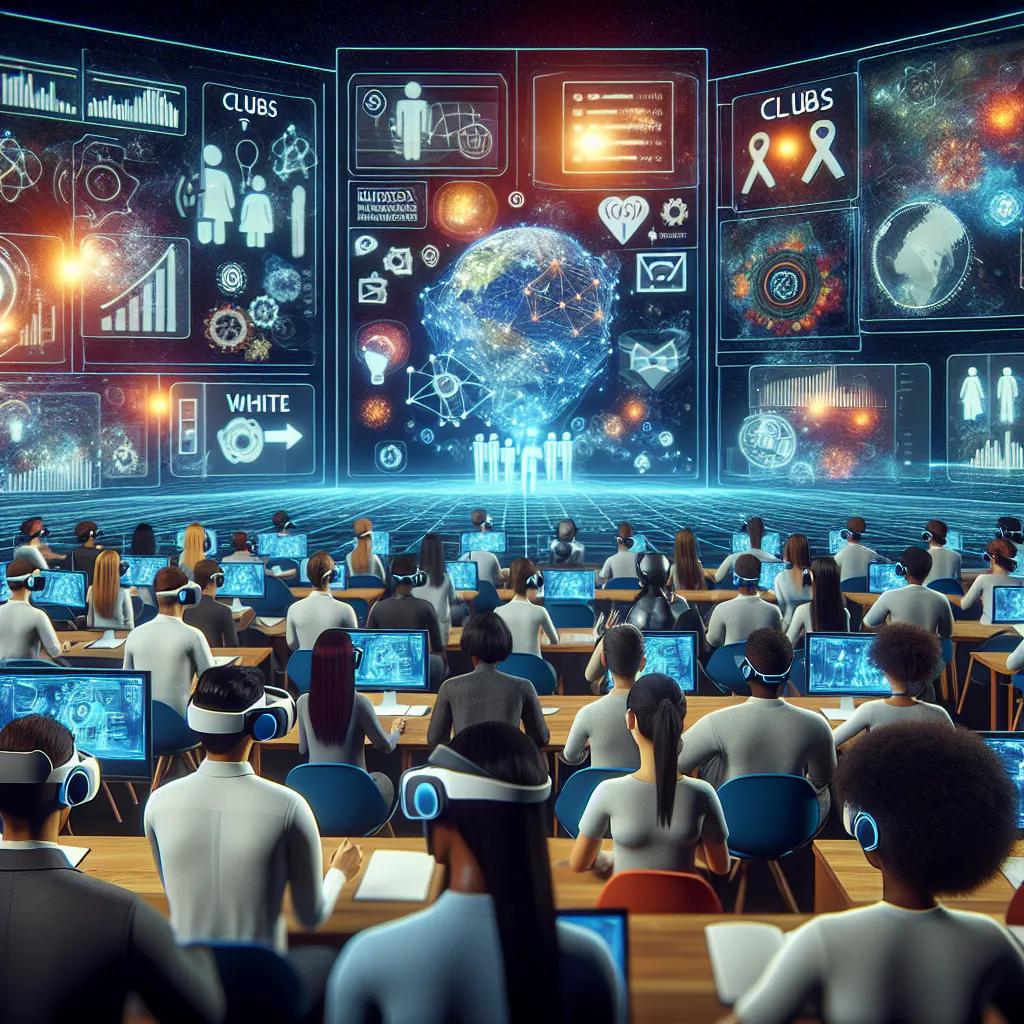
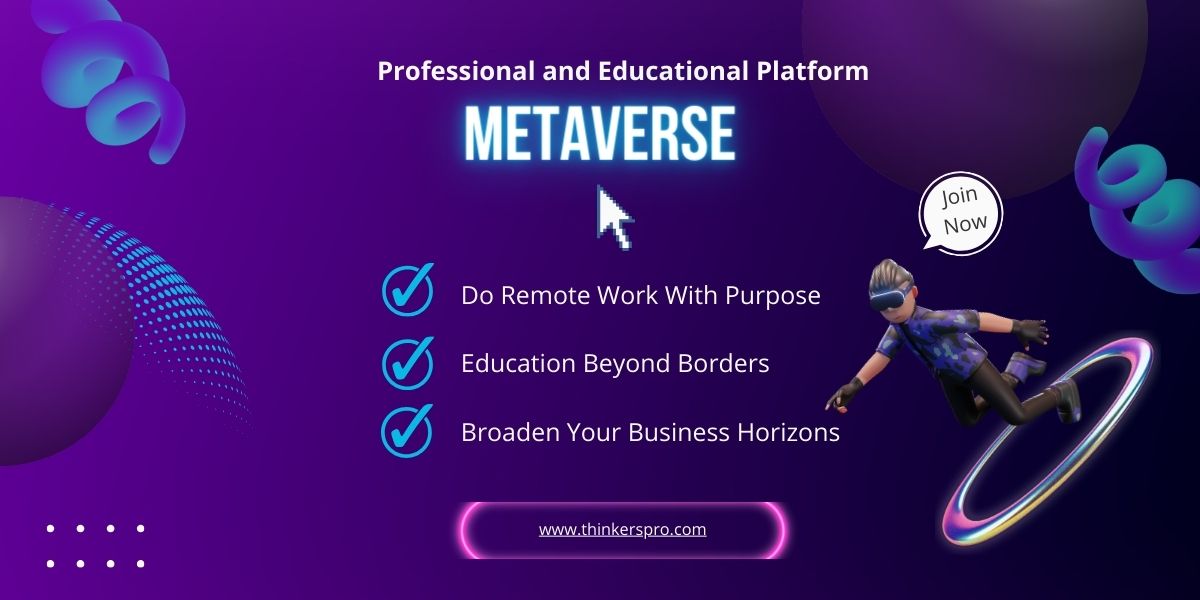
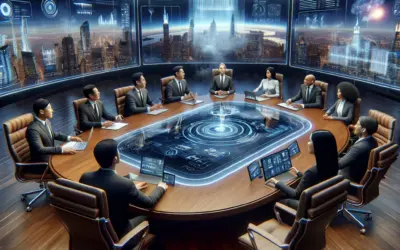
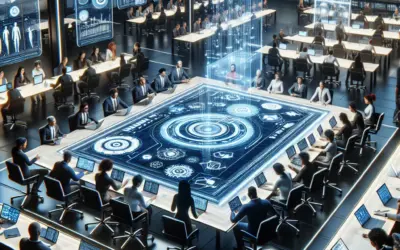
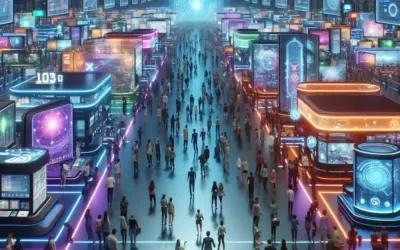
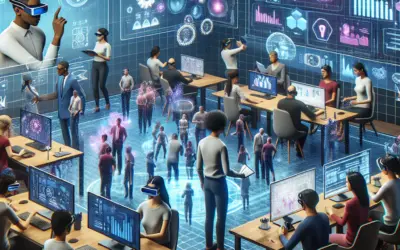
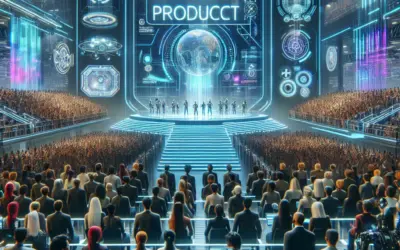
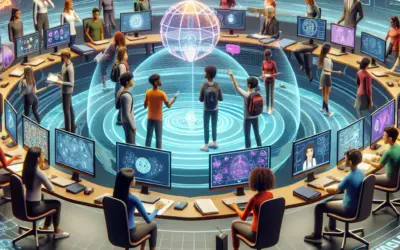
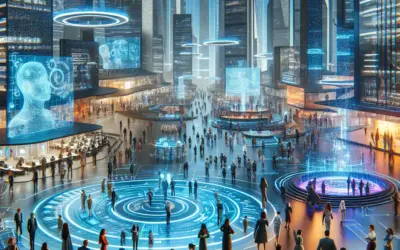
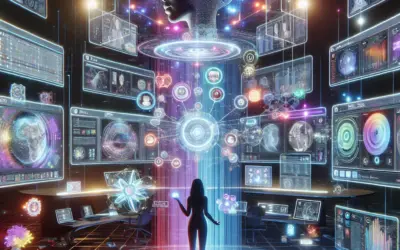

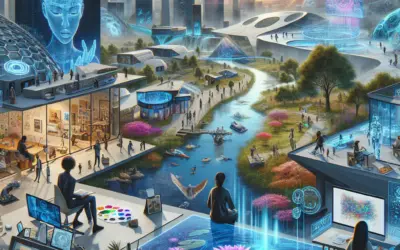
0 comentarios